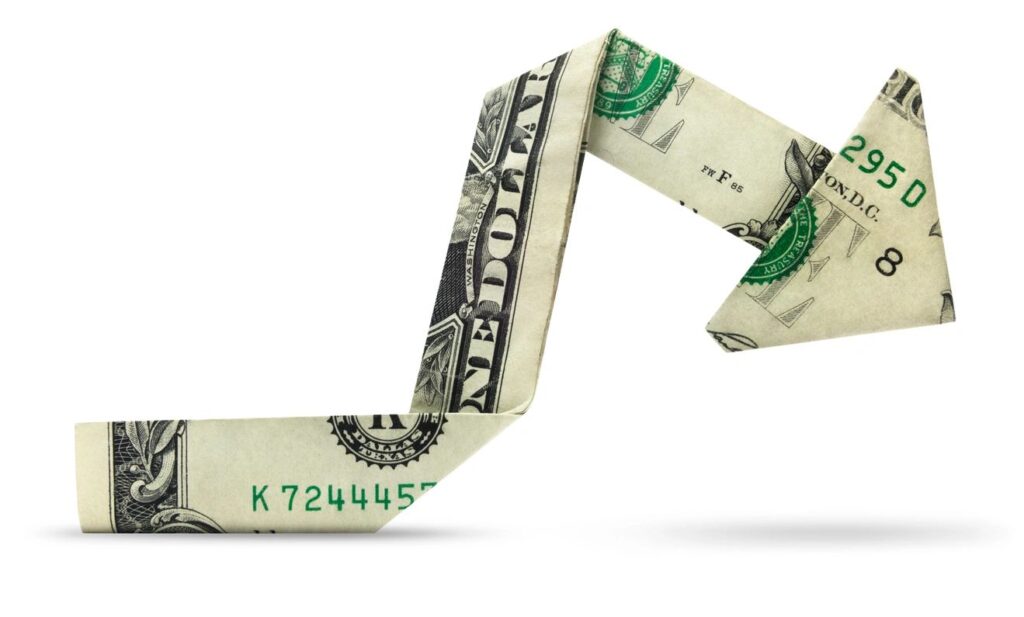The minimum wage debate never really goes away, but in an election year with politics on everyone’s brain, the issue bubbles to the top again. In the US, some advocate raising the federal minimum wage from its current level of $7.25 to $17 or more. Economists argue, politicians pander, workers protest, and social media addicts meme. Here are a few thoughts on the issue, which I hope will clarify some things.

The basic logic of the law of demand is that if something becomes more expensive, people will buy less of it. That goes for the labor market also. That means that we could see some unintended consequences if government tries to make labor more expensive. Making labor artificially more costly means employers will find ways to get by with less of it. That may mean using more machines instead of people, in which case the people who are most easily replaced by machines will be let go. The self-service kiosks you see in many fast food restaurants are a good example of this, as they replace the person whose job it is to listen to your order, punch it into a machine, and hand you a receipt. Some of that replacement is going to occur anyway with the advancement of technology, but if you’re concerned about machines replacing people because of the cost savings machines represent, the last thing you would want to do is make people even more expensive with a higher minimum wage.
Fundamentally, a person’s wage is related to their ability to produce something of value for an employer. If, because of low skill levels, low experience, low reliability, or some other factor that affects my productivity, I can generate only $12 for my employer every hour I’m at work, but the government now says I have to be paid at least $15 every hour, my employer is going to lose $3 every hour I’m there (keeping it simple and ignoring payroll taxes, unemployment insurance taxes, and other costs of employing humans). So I will be laid off. Raising the minimum wage past my ability to be productive is going to render me unemployed, and I’ll be earning $0 per hour. I’ll be part of the surplus of low-skilled labor. Some employers might try raising prices to compensate, but that can backfire as customers start buying from other companies that switched to machines or who use a production process that involves relatively more high-skilled workers. Demand curves slope downward for hamburgers too.
So people who are saying a minimum wage increase will be good for the economy because of the increased spending from workers who are earning more money are forgetting that even if some workers get increases in pay (more on that next), others will go from whatever they were earning to $0–their spending will decrease. But what if the demand curve for low-skilled labor is inelastic, meaning that total spending on the wages of low-skilled workers increases? That money, too, has to come from somewhere else, so that the overall economy is simply being distorted, not improved, by the increased wage to low-skilled workers.
Many jobs compensate in other ways besides money. I might take a job that pays less or even nothing (think internships), sacrificing pay but expecting my employer to expend effort training me so that I can gain valuable experience, thereby improving my future job prospects. I might get employee discounts on the product, or my employer might give me flexibility on my work hours (which is not free for employers). So if I’m a $12/hr. worker that suddenly gets a $3 boost after the minimum wage goes up, I might be tempted to say that I’m $3/hr. better off–until my employer stops being as willing to work with me on my schedule, cuts my employee discount, or invests less in training me. In fact, I could find myself worse off. Research has been done on these “non-employment margins” that are affected by minimum wage laws.
This training and experience is particularly important for younger workers making their way up the employment ladder. And the adverse long-term effects of a higher minimum wage on this group can be significant. As David Neumark and Elena Nizalova found,
Exposure to minimum wages at young ages could lead to adverse longer-run effects via decreased labor market experience and tenure, and diminished education and training…. Evidence suggests that as individuals reach their late 20s, they earn less the longer they were exposed to a higher minimum wage at younger ages, and the adverse longer-run effects are stronger for blacks… such longer-run effects of minimum wages… are likely more significant than the contemporaneous effects on youths that are the focus of research and policy debate.
David Neumark and Elena Nizalova, 2007, “Minimum Wage Effects in the Longer Run,” Journal of Human Resources 42, no. 2: 435–52.
Some people are better off as a result of an increased minimum wage, but it might not be the group we first think of. Suppose I’m a relatively skilled worker, making $15 an hour. I’m a little threatened by the prospect of my employer replacing me with a $12/hour worker who is paid 80% what I make but does 85% as much work. How do I solve that problem? I don’t want to take a pay cut to make myself competitive with the lower-skilled worker (who, after all, is just trying to make his way up the experience ladder). But I could support a political effort to make it illegal for employers to pay people less than what I make, so that my job isn’t threatened by less skilled workers. I get some job security, and lower-skilled people get unemployed. So I think the increase-the-minimum-wage crowd is probably made up of several groups–including 1) people making less than $15/hr. who mistakenly think their life (as a group) will be better, and 2) people making more than $15/hr. who aren’t worried about the risk of unemployment but either feel like they’re supporting the poor or (less charitably) know that this will cut their competition. Maybe the crowd also includes some larger firms who hire $15+ employees for the most part anyway, or can easily switch to machines, and can disadvantage their competition by driving up their labor costs.

Over a hundred years ago, the disemployment effects of minimum wages were well-understood, but in some influential circles the concentration of adverse effects on lower-skilled workers was regarded as a feature, not a bug. Racist Progressives thought of a higher minimum wage as a way to keep “inferior” groups out of the workforce, in the interests of Anglo-Saxon advancement. As Princeton economist Thomas Leonard explained,
The many left progressives who advocated the minimum wage … agreed that [it] would throw the least productive employees out of work or prevent their employment in the first place. But these reformers saw the removal of the less productive not as a cost of the minimum wage but as a positive benefit to society. Removing the inferior from work was not a regrettable outcome, justified by the higher wages for other workers. Removing the inferior from work benefited society by protecting American wages and Anglo-Saxon racial integrity.
Thomas C. Leonard, 2016. Illiberal Reformers: Race, Eugenics, and American Economics in the Progressive Era. Princeton: Princeton University Press.
Many who want to see the minimum wage increase will take note of the inflation that has occurred since the last time the minimum wage went up, and point out that the minimum wage “hasn’t kept up with inflation.” My response: Good. If the minimum wage renders the least skilled workers unemployable because they can’t produce enough to justify the wage, or prevents workers from striking a deal for training and other non-monetary compensation instead of monetary payment, then the lower the minimum is, the better. If the minimum wage can’t be repealed outright, the next best thing would be to let inflation erode the real value of the minimum wage. The least skilled workers would benefit from this erosion. In many places, this has happened. The market wage has risen so that the minimum wage is below the market wage, making it irrelevant for even the majority of low-skilled workers.
Some of the conversation surrounding the minimum wage uses the term “exploitation”–or some variant of that concept–to describe the working conditions of low-wage workers. This involves a philosophical question–what does exploitation mean? But regardless of the definition, in a labor market where labor hours are voluntarily supplied by the employees, workers who feel that they are being exploited can leave. This isn’t an isolated mill town in 1880 where there’s only one employer. It’s easier than ever before to locate another job. If an employee believes he can get a better deal somewhere else, he’s free to go. And many do–employee turnover at some low-wage jobs is high. If no one is willing to pay the employee more, then, again, trying to force this through a minimum wage increase is not going to improve the situation for that worker. It’s difficult to understand how employers could conspire to keep that employee from getting a better deal elsewhere. They would have to coordinate with all the other possible employers and make a collective agreement not to hire low-skilled workers for more than $X. That is: thousands upon thousands of independent potential employers, some of whom are in fierce competition with each other, would have to all agree not to pay workers more than $X, so that they, the Greedy Capitalist Pigs (GCPs), can collectively keep workers from leaving for better pay or better working conditions elsewhere. And the GCPs would have to be able to make that agreement stick. Any employer that pays more than what the GCP group agrees would be punished by the rest of the group. The only case I can think of in the US where this kind of thing has happened in recent years is the NCAA cartel. The NCAA is a group of employers of college-level athletes who have collectively agreed to pay their workers (the athletes) no more than the cost of tuition. They try to make that stick with complex rules, and penalties on institutions that compensate athletes under the table. Even that cartel’s efforts have weakened considerably, as some athletes can now receive some kind of cash stipend in addition to their athletic scholarship. But hundreds of thousands of employers across many industries covering tens of millions of low-skilled workers somehow conspiring to form a large scale employer’s cartel to suppress wages is… improbable, to say the least.
If you want to dive more deeply into this, here is my introduction to the scholarly literature.
